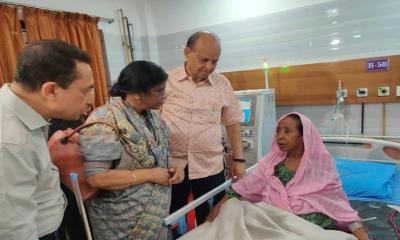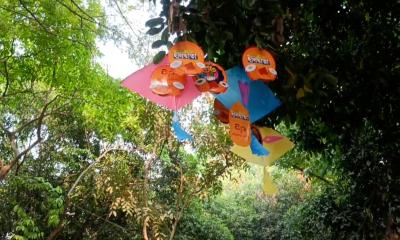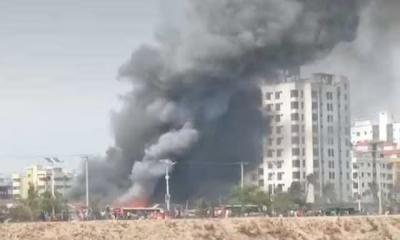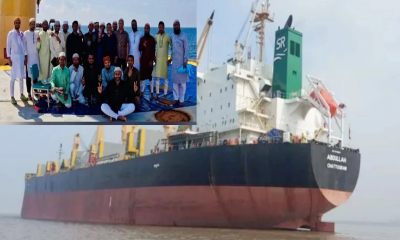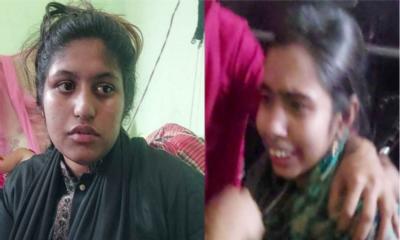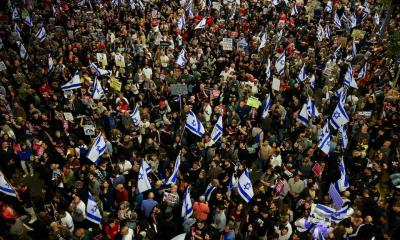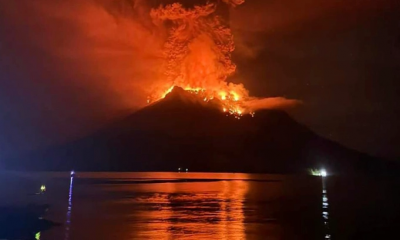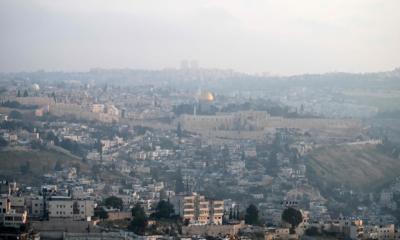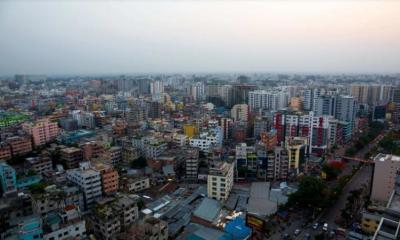Police used water cannon on Monday (Feb 8) on anti-coup protesters in Myanmar’s capital Naypyidaw, an AFP photographer at the scene said as demonstrations continued for a third straight day against the military’s removal and detention of elected leader Aung San Suu Kyi a week ago.
The photographer saw two people injured, and social media footage of the incident showed two men collapsing after being sprayed with suspected chemical-laced water.
Police appeared to stop using the water cannon after protesters appealed to them, but the demonstration continued.
Thousands of anti-coup protesters marched in towns and cities across Myanmar on Monday, witnesses said.
Calls to join protests and to back a campaign of civil disobedience have grown louder and more organised since last Monday’s coup, which drew widespread international condemnation.
In the biggest city of Yangon, a group of saffron-robed monks marched in the vanguard of Monday’s protest with workers and students. More than 1,000 people gathered at a park by mid-morning.
They flew multicoloured Buddhist flags alongside red banners in the colour of Ms Suu Kyi’s National league for Democracy (NLD), witnesses said.
“Release Our Leaders, Respect Our Votes, Reject Military Coup,” said one sign. Other signs read “Save democracy” and “Say No to Dictatorship”. Many protesters wore black.
“We health workers are leading this campaign to urge all government staff to join the (civil disobedience movement)”, Aye Misan, a nurse at a government hospital said at a protest in the biggest city of Yangon.
“Our message to the public is that we aim to completely abolish this military regime and we have to fight for our destiny.”
“This is a work day, but we aren’t going to work even if our salary will be cut,” one protester, 28-year-old garment factory worker, Hnin Thazin, told AFP.
In Myanmar’s second largest city, Mandalay, more than a thousand had also gathered by mid morning. And hundreds were seen turning out in the capital of Naypyidaw, riding around on motorbikes and honking car horns, while major rallies were also reported in other towns.
Protests that swept the country on Sunday were the biggest since the “Saffron Revolution” led by Buddhist monks in 2007 that helped prompt democratic reforms that were upended by the Feb 1 coup.
“Marchers from every corner of Yangon, please come out peacefully and join the people’s meeting,” activist Ei Thinzar Maung urged followers on Facebook, using VPN networks to rally protesters despite a junta attempt to ban the social media network.
Thousands marched in the coastal city of Dawei, in the southeast, and in the Kachin state capital in the far north, where they were dressed head to toe in black.
So far gatherings have been peaceful, unlike bloody crackdowns during previous widespread protests in 1988 and 2007. A convoy of military trucks was seen passing into Yangon late on Sunday, raising fears that could change.
Reuters has been unable to contact the junta for comment on the protests and state television has not mentioned them.
Calls for work stoppages
The government lifted a day-long internet ban at the weekend that prompted even more anger in a country fearful of returning to the isolation and even greater poverty before a transition to democracy began in 2011.
Activists Maung Saungkha and Thet Swe Win posted on their Facebook pages that police had been to search for them at their homes, but that they were not there and were still free. In addition to the street protests, a campaign of civil disobedience has begun, first with doctors and joined by some teachers and other government workers.
“We request government staff from all departments not to attend work from Monday,” said activist Min Ko Naing, a veteran of the demonstrations in 1988 that first brought Ms Suu Kyi to prominence.
SOURCE: REUTERS, AFP


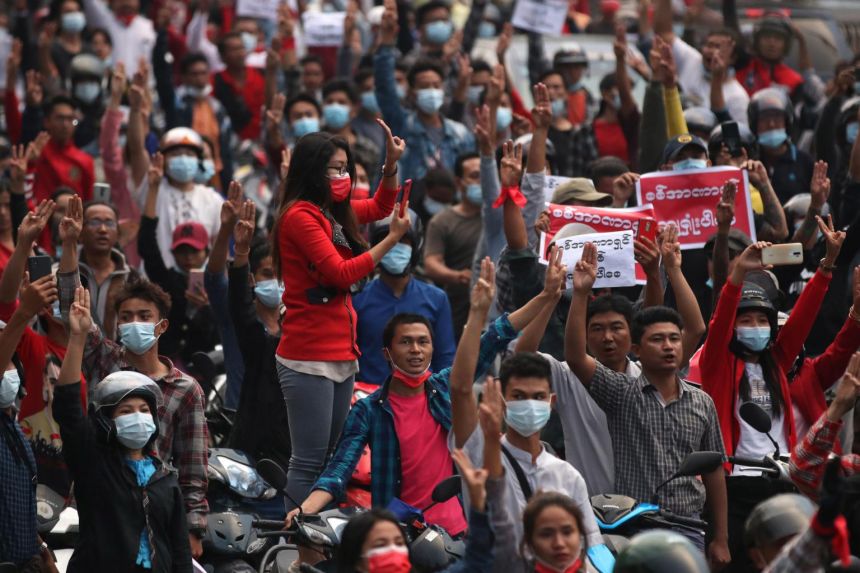

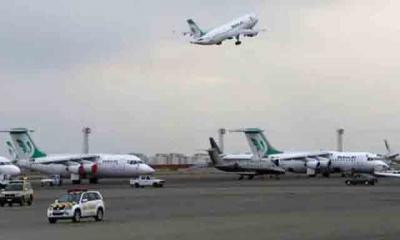

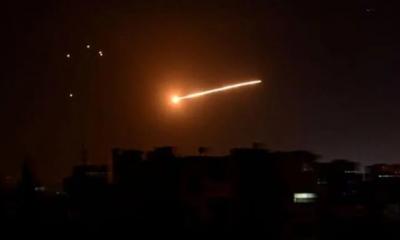
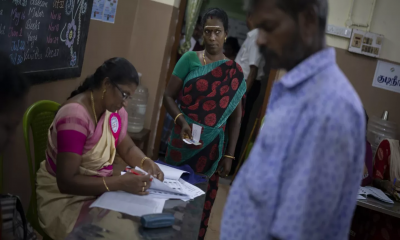
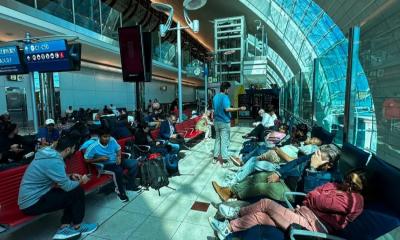
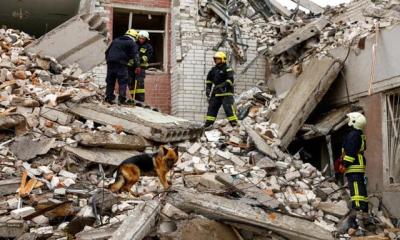
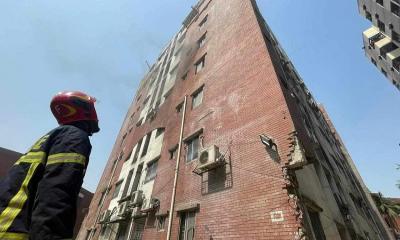
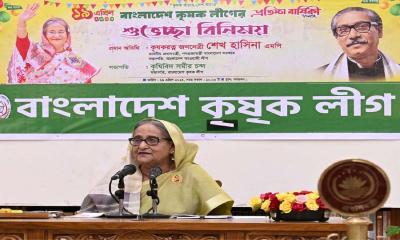
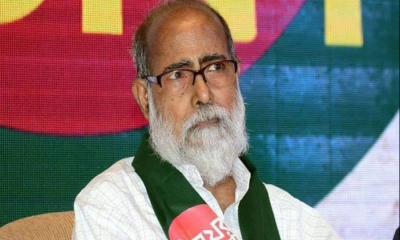
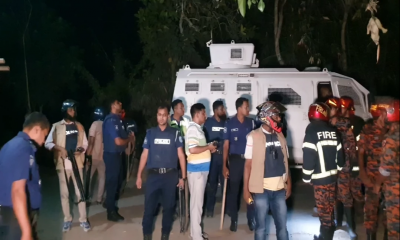
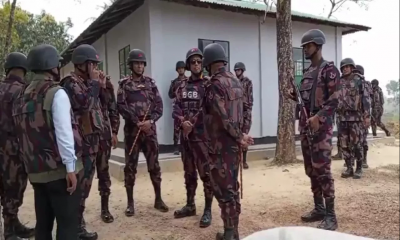

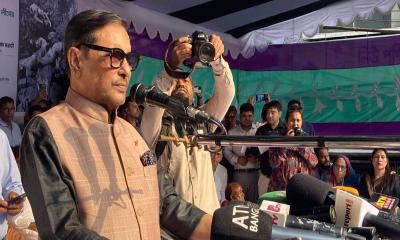
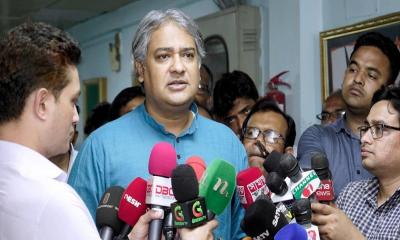
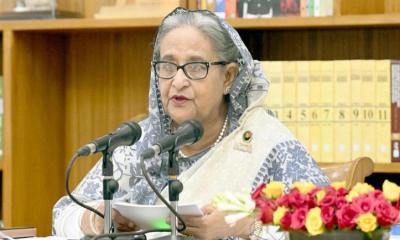
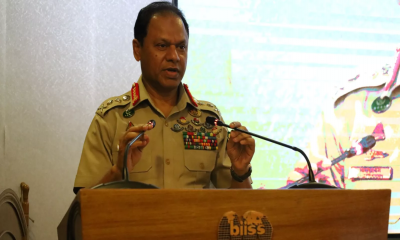
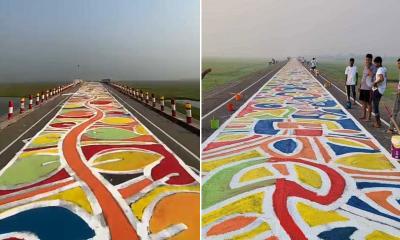
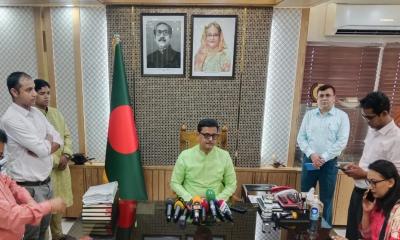
-20240416150710.jpeg)

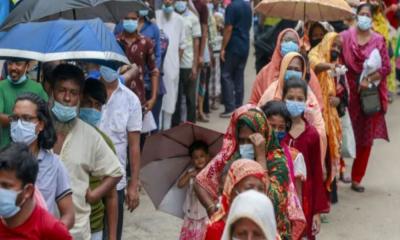
-20240416051011.jpg)
